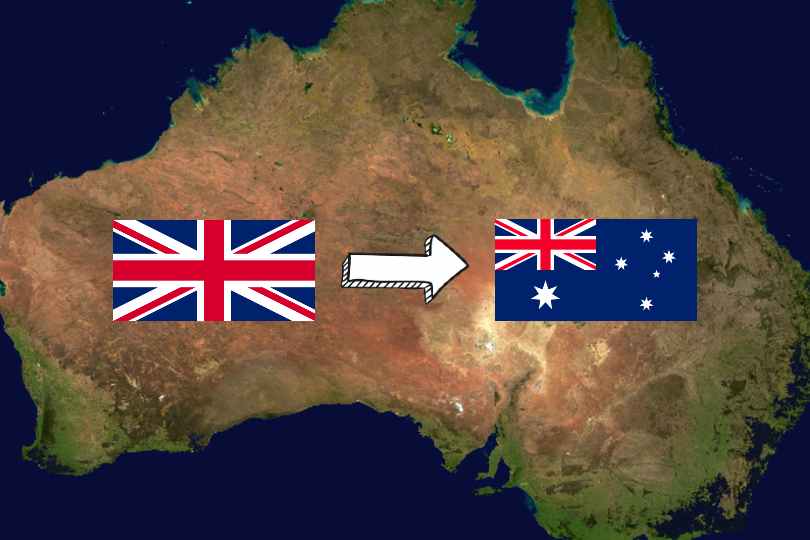
To transfer your UK pension for retirement in Egypt, you only need the details of your current scheme to get started.
This is the transfer process, step by step, all of which I can help you with.
Also consider: Read more about how to transfer your UK pension
Looking to transfer your UK pension?
Speak to me, Dan Ward, about transferring your UK pension funds to Egypt.
Checklist for transferring a UK pension to Egypt
- Collate all existing UK pensions
- Request a CETV (Cash Equivalent Transfer Value)
- Conduct a cost and performance comparison
- Identify the best solution for Egypt
- Submit transfer request documentation to the existing and new provider
Advice Requirement
Before attempting to transfer your pension overseas, seeking individualised advice is highly recommended. The transfer process can be complex; without advice, you’d have no recourse if something went wrong. However, consulting a suitable financial adviser is also mandatory when you have more than £30,000 in safeguarded pension benefits.
UK advisers are best at transferring pension funds for anyone who intends to remain a long-term UK resident. But when you retire abroad, consulting an expatriate finance expert is vital, and there are few in the UK.
I have the requisite experience and licenses and am an expat myself. You can contact me any time, before or after moving abroad to Egypt, for knowledgeable pension transfer guidance tailored to your individual circumstances.
What is a UK pension scheme, and how do you know if you have one?
A UK pension scheme is a tax-advantaged plan that incentivises retirement savings. It can be provided by your workplace or one you arrange personally. Anyone living or working in the UK will likely have one or more plans and may qualify for the state pension, too.
Whether your pension is an occupational or a personal plan, your contributions always attract tax relief at your marginal income tax rate. Further, its growth is always free of capital gains tax. A pension commencement lump sum of up to a quarter of your pot is generally tax-free, which you can withdraw from ten years below your state retirement age.
When do you pay tax on UK pension savings?
UK tax on your pension fund only becomes payable at commencement if you are a UK resident and your overall personal income is high enough.
Depending on your income, there is a maximum annual limit on how much you can contribute to your UK scheme without triggering tax charges. Anyone earning between £12,570 and £200,000 may contribute up to £60,000 yearly to their workplace or private pension. The limit is adjusted down in increments for higher earners, while for non-taxpayers, the annual allowance is £2,800.
Before the abolition of the lifetime allowance in spring 2023, you would also pay tax on the excess amount when your retirement savings exceeded £1,073,100. The opposition has vowed to reinstate the lifetime allowance if they win the general election in 2024, so it remains something to bear in mind.
When you transfer your pension into a scheme ideally suited for Egypt, depending on your residence status, you escape having to pay UK tax at all. Ask me if you’d like to learn more about this. Note that the tax year in the UK runs from April 6th to April 5th, while the Egyptian tax year is from July 1st to June 30th.
UK state pension
Suppose you’ve made ten or more years of qualifying National Insurance contributions. In that case, you can receive the UK state pension in Egypt, but as there is no social security agreement between the two nation-states, it will be frozen, meaning it will not increase yearly in line with inflation.
More information is available from the UK government’s International Pension Centre online.
Workplace plans
As it has been obligatory since 2012 for British employers to auto-enrol employees in an occupational plan, if you’ve had a UK employer since then, you could have at least one workplace scheme.
The Pension Tracing Service on the UK government website is an excellent place to search for any you’ve lost track of. You could consolidate them into one international pot – I can help you with this.
The two distinct forms of occupational retirement savings are final salary and money purchase. Here’s how to tell the difference between them, but if you need more help determining your specific type, simply ask the pensions manager at work.
Final Salary
A final salary pension is a defined benefits (DB) plan that accrues through pensionable service rather than investment growth. DB schemes are most common within the public sector, but some private-sector employers offer them. Yours may be unfunded, providing an annuity, not a transfer value. Annuities are guaranteed income, usually for life, and may include additional spousal or dependent benefits.
Due to extreme market instability, nobody can truthfully guarantee replicating these valuable benefits. For this reason, the UK government imposes a mandatory obligation to seek suitable advice before transferring from a final salary arrangement when it is worth £30,000 or more.
If your transfer value is only just over £30,000 and it is your sole pot, the cost of advice is unlikely to be worthwhile, and you should probably leave it where it is. You must demonstrate to your UK scheme administrator that you have ample additional funds to support your retirement goals before they can agree to transfer your pension, so please speak to them in the first instance.
Money Purchase
All other workplace schemes and personal plans are some form of money purchase, that is, a ‘defined contribution’ arrangement.
Generally, the UK pension provider invests your contributions for you, and their performance determines how much money you can expect in retirement. Alternatively, you may have a workplace scheme that grants more significant control over investments, such as a group self-invested personal pension or a small self-administered scheme.
Looking to transfer your UK pension?
Speak to me, Dan Ward, about transferring your UK pension funds to Egypt.
Personal Pension
The self-employed are most likely to have taken out a personal scheme, possibly with an insurance company, building society, bank or other provider. Look for the annual statement summarising your savings for further details.
The value of most personal plans depends upon the investments made by your UK pension scheme administrator. However, a notable exception is the self-invested personal pension, or SIPP.
Self-Invested Personal Pension, SIPP
Unlike standard schemes, a SIPP is a ‘wrapper’ granting holders access to an almost unlimited range of investing opportunities while attracting tax relief on contributions and growth. For example, you can use one to purchase commercial property or choose from various financial products.
With a SIPP, you can invest in offshore bonds, denominating a solid currency to make it an overseas scheme. Beware of higher fund management charges; I can keep these to the bare minimum by ensuring you are not missold bespoke products you don’t need.
Options for a pension transfer to Egypt
There are two transfer options for retirement in Egypt: a transfer to a QROPS (qualifying recognised overseas pension scheme) or an international SIPP. A third way is to leave your retirement fund where it is, receiving income by direct credit to a bank account. Still, you must pay currency conversion costs each time.
In contrast, a transfer to a QROPS or an international SIPP grants certain benefits, allowing you to accrue and spend in a relevant currency, consolidating all your plans into one manageable pot and reducing currency risk, among many other advantages and tax benefits.
Key differences distinguish a QROPS from an international SIPP, though.
Qualifying Recognised Overseas Pension Scheme
Any overseas pension scheme which meets UK rules governing taxes, contributions and withdrawals may be designated as a QROPS by His Majesty’s Revenue and Customs (HMRC).
When writing this, none are currently listed for the Arab Republic of Egypt, but you could transfer to a QROPS based in the European Economic Area (EEA) and pay a tax of 25% for the overseas transfer charge. Why would you do this when you are living abroad in a different financial jurisdiction?
Well, those of you with retirement funds in excess of the lifetime allowance, should it be reinstated following a change of UK administration, will not be taxed when transferring to a qualifying scheme in any EEA country. If this concerns you, I’m happy to review all your options to identify the most cost-effective solution.
International SIPP
With cost efficiency in mind, an international SIPP is invariably the way to go for many. The transfer process is not only less costly but often quicker and less complex too.
I can help identify an international SIPP provider fully regulated by the Financial Conduct Authority so your money is safe.
Looking to transfer your UK pension?
Speak to me, Dan Ward, about transferring your UK pension funds to Egypt.
How to transfer UK pension to Egypt FAQs
Can you transfer your UK pension to another country?
How do I transfer my UK pension savings?
Will I lose my UK pension if I move abroad?
Please note
A pension is a long-term investment. The fund value may fluctuate and can go down, which would have an impact on the level of pension benefits available. Your pension income could also be affected by the interest rates at the time you take your benefits.
Overseas pension transfers can be complex. Make sure you take financial advice before you transfer your funds.




